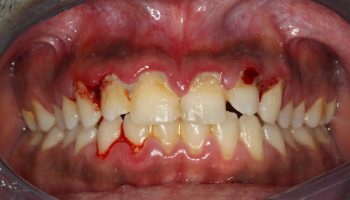Blurred vision
Blurred vision means the loss of sharpness of vision and the inability to see fine details, the things you see will not look sharp and clear. You may experience blurred vision in both eyes or just in one eye, depending on what is causing it. Sometimes everything you look at will be blurry, while sometimes just part of your field of vision will be blurred.
You can also have other symptoms along with blurred vision, including headaches, sensitivity to light, or red, irritated eyes.
Blurred vision can affect both eyes, but some people experience blurry vision in one eye only.
Blurred vision can be caused by a number of eye conditions or by an underlying disease, such as diabetes. Usually, it’s nothing to worry about, but if you develop blurred vision suddenly you should see your doctor immediately so they can check that it’s nothing serious.
The primary causes of blurred vision are refractive errors — nearsightedness, farsightedness and astigmatism — or presbyopia. But blurry vision also can be a symptom of more serious problems, including a potentially sight-threatening eye disease or neurological disorder.
Cloudy vision, where objects are obscured and appear “milky,” is often mistaken for blurry vision. Cloudy vision usually is a symptom of specific conditions such as cataracts, but blurry and cloudy vision can both be symptoms of a serious eye problem.
A qualified eye doctor can measure the extent of your blurred vision and determine the cause with a comprehensive eye exam, including spatial contrast sensitivity, slit-lamp and standard Snellen eye chart tests.
Sudden blurred vision that persists could be a sign of a serious health problem, and you should see a doctor immediately.
If you have sudden blurred vision in one eye and are over 60, you may have developed a macular hole in the part of the retina where fine focusing occurs. Blurred vision also may be a symptom of a detached retina, eye herpes or optic neuritis (inflammation of the optic nerve), among other causes.
Certain eye conditions and diseases can cause permanent loss of vision, so it’s important to visit your eye care practitioner for diagnosis and prompt treatment.
Seek emergency care if you suddenly develop blurred vision along with:
- Partial or complete blindness in one or both eyes, even if it is only temporary.
- Double vision, even if it is temporary.
- Sensation of a shade being pulled over your eyes or a curtain being drawn from the side, above, or below.
- Blind spots, halos around lights, or areas of distorted vision appear suddenly.
- Sudden blurred vision with eye pain, particularly if the eye is also red. A red, painful eye with blurred vision is a medical emergency.
- Dizziness
- Weakness or numbness in one arm
- A drooping face
- Loss of balance
- Slurred speech
Get a complete eye exam if you have:
- Trouble seeing objects on either side.
- Difficulty seeing at night or when reading.
- Gradual loss of the sharpness of your vision.
- Difficulty telling colors apart.
- Blurred vision when trying to view objects near or far.
- Diabetes or a family history of diabetes.
- Eye itching or discharge.
- Vision changes that seem related to medication. (DO NOT stop or change a medicine without talking to your doctor.)
What causes blurred vision?
Blurred vision can be caused by eye conditions, including:
- Difficulty focusing your eyesight, such as with near-sightedness (myopia) or far-sightedness (hyperopia)
- Astigmatism (when the surface of the eye isn’t curved properly)
- Presbyopia (when your eyes find it harder to focus as you age). Difficulty focusing on objects that are close. This problem often becomes noticeable in your early to mid-40s.
- Diabetic eye disease. Diabetes also increases the chance of having glaucoma, cataracts, and other eye problems. Diabetes can damage the small blood vessels in the retina, the back part of your eye. This condition is called diabetic retinopathy.
- Dry eye syndrome
- Cataracts. Cloudiness over the eye lens, causing poor nighttime vision, halos around lights, and sensitivity to glare. Cataracts are common in older people.
- Glaucoma. Increased pressure in the eye, which is most often painless. Vision will be normal at first, but over time you can develop poor night vision, blind spots, and a loss of vision to either side. Some types of glaucoma can also happen suddenly, which is a medical emergency.
- Damage to the cornea
- Age-related macular degeneration. Loss of central vision, blurred vision (particularly while reading), distorted vision (straight lines will appear to be wavy), and colors that look faded. The most common cause of blindness in people over age 60 years.
- An eye infection
- Eye inflammation
- Floaters: Tiny particles drifting inside the eye, which may be a sign of retinal detachment.
- Problems with the retina, such as diabetic retinopathy
- An injury to the eye
- Night blindness.
- Retinal detachment: Symptoms include floaters, sparks, or flashes of light in your vision, or a sensation of a shade or curtain hanging across part of your visual field.
- Optic neuritis: Inflammation of the optic nerve from infection or multiple sclerosis. You may have pain when you move your eye or touch it through the eyelid.
- Stroke or TIA (transient ischemic attack or mini-stroke).
- Brain tumor.
- Bleeding into the eye.
- Temporal arteritis: Inflammation of an artery in the brain that supplies blood to the optic nerve.
- Migraine headaches: Spots of light, halos, or zigzag patterns that appear before the start of the headache.
Blurred vision can also be a symptom of another medical condition, such as:
- diabetes
- migraine
- stroke
- head injury
- low blood sugar
- pre-eclampsia (high blood pressure) if you are pregnant
- psoriasis (a skin condition that sometimes can also affect the eyes)
- multiple sclerosis
- brain tumor
- Parkinson’s disease
Sometimes, blurred vision can be a side effect of medicines that you may be taking.
How to prevent blurred vision
It’s very important to look after your eyes, so have regular eye check-ups every two years with a registered practitioner such as an optometrist or ophthalmologist.
Protect your eyes from UV light by wearing sunglasses and a hat; protect them from injury by using safety glasses, especially if you do hazardous work.
Having a healthy lifestyle and giving up smoking will also safeguard your eyes.
It is especially important to look after your eyes if you have diabetes. Do this by controlling your blood glucose levels, making sure you have healthy blood pressure and cholesterol levels. See your doctor straight away if you notice any vision problems to prevent them from getting worse.
These important steps can prevent eye and vision problems:
- Wear sunglasses to protect your eyes.
- Wear safety glasses when hammering, grinding, or using power tools.
- If you need glasses or contact lenses, keep the prescription up to date.
- DO NOT smoke.
- Limit how much alcohol you drink.
- Stay at a healthy weight.
- Keep your blood pressure and cholesterol under control.
- Keep your blood sugar under control if you have diabetes.
- Eat foods rich in antioxidants, like green leafy vegetables.
Blurred vision symptoms
Blurred vision means the loss of sharpness of vision and the inability to see fine details, the things you see will not look sharp and clear. You may experience blurred vision in both eyes or just in one eye, depending on what is causing it. Sometimes everything you look at will be blurry, while sometimes just part of your field of vision will be blurred.
You can also have other symptoms along with blurred vision, including headaches, sensitivity to light, or red, irritated eyes.
Blurred vision can affect both eyes, but some people experience blurry vision in one eye only.
Blurred vision diagnosis
Your doctor will check your vision, eye movements, pupils, the back of your eye (called the retina), and eye pressure. An overall medical evaluation will be done if needed.
It will be helpful to your doctor if you can describe your symptoms accurately. Think about the following ahead of time:
- Has the problem affected your vision?
- Is there blurring, halos around lights, flashing lights, or blind spots?
- Do colors seem faded?
- Do you have pain?
- Are you sensitive to light?
- Do you have tearing or discharge?
- Do you have dizziness, or does it seem like the room is spinning?
- Do you have double vision?
- Is the problem in one or both eyes?
- When did this begin? Did it occur suddenly or gradually?
- Is it constant or does it come and go?
- How often does it occur? How long does it last?
- When does it occur? Evening? Morning?
- Is there anything that makes it better? Worse?
Your doctor will also ask you about any eye problems you have had in the past:
- Has this ever happened before?
- Have you been given eye medicines?
- Have you had eye surgery or injuries?
- Have you recently traveled out of the country?
- Are there new things you could be allergic to, such as soaps, sprays, lotions, creams, cosmetics, laundry products, curtains, sheets, carpets, paint, or pets?
Your doctor will also ask about your general health and family history:
- Do you have any known allergies?
- When did you last have a general checkup?
- Are you taking any medicines?
- Have you been diagnosed with any medical conditions, such as diabetes or high blood pressure?
- What kinds of eye problems do your family members have?
The following tests may be performed:
- Dilated eye exam
- Slit-lamp examination
- Refraction (test for glasses)
- Tonometry (eye pressure test)
Treatments depend on the cause. Surgery may be needed for some conditions.
Blurred vision treatment
The cause of your blurred vision will be diagnosed using various eye tests and a physical examination of your eyes. If an underlying medical cause is suspected, you may also have a blood test.
The treatment of your blurred vision will depend on the cause. It might include eye drops, laser surgery or medicines.
If you have blurred vision, you may need to wear glasses or contact lenses.





